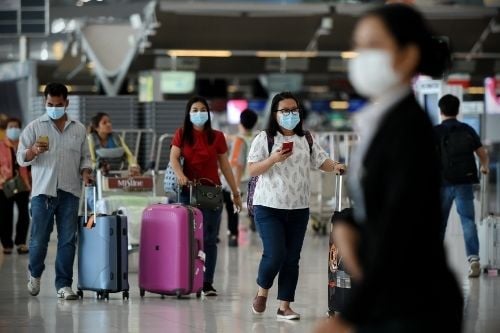

Following the discovery of three new community COVID-19 cases in Auckland, Australia swiftly shut down its one-way travel bubble to New Zealand, and is now requiring anyone arriving from the country to spend 14 days quarantined in a hotel.
The rule is to remain in place throughout Auckland’s three day lockdown, after which the decision will be reassessed. New Zealand has reported no further cases on Monday and Tuesday, with COVID-19 response minister Chris Hipkins saying that any day with zero positive tests “is always a good day.”
The decision has once again put the concept of two-way travel bubbles into jeopardy, though Cover More’s general manager - underwriting and product NZ Eftim Stojanov says that the idea isn’t quite dead on the ground yet, and that a lot will depend on the risk tolerance and vaccination programmes of both countries.
“I don’t think the idea of a two-way travel bubble is dead,” Stojanov commented.
“But there has been a very conservative approach adopted by both the New Zealand and Australian governments, and that means that if a bubble opens, a single case can shut it down. Consequently, any more than one case will burst a bubble very quickly, because at that point there becomes a high probability of another lockdown.”
“Given the prevalence of the disease, the different variants and the stage of vaccination that we’re at, the approach of our government is still ‘zero risk’,” he explained.
“I think we’ll see how long this latest lockdown lasts, and how good we can become at controlling these small outbreaks. If, after three days, we can show that we have no cases and everything is fine, and if we can demonstrate an excellent track record of contact tracing and mitigating these outbreaks, then we will have a much higher chance of a bubble opening.”
Despite this, Stojanov says that the ‘zero risk’ approach will always be in the background, and will have the potential to burst any travel bubbles very quickly in the event of an outbreak. He says the types of vaccines being used in Australia and New Zealand will be a key part of the decision-making process, along with how quickly mass vaccination can be implemented.
“As we saw with these latest cases, the Australian government immediately shut down the one-way bubble,” he said.
“I think that a bubble is definitely still on the table. However, it will become more realistic to sustain as the level of vaccination increases within the population.”
“There are two types of vaccine out there at the moment - ones that reduce the symptoms of the disease, and others that reduce the infection,” he explained.
“The latter type will matter much more for us, because even if you don’t feel sick, being infectious is still a problem. Another key factor will be which vaccines can actually reduce infection rates for the new variants globally.”
“In New Zealand and Australia, bubbles will become much more realistic to sustain once we have mass vaccination,” Stojanov added. “Without that, it’s just wishful thinking and will get burst very quickly, where we go back to square zero.”
With travel and tourism businesses in New Zealand still struggling and international tourists looking unlikely to return anytime this year, the government has announced a Resurgence Support Payment of $1,500 plus $400 per employee to any business that has suffered a 30% drop in revenue, with a maximum grant of $21,500 if the lockdown period is extended.
Finance Minister Grant Robertson acknowledged that many businesses would be once again struggling with cashflow under Alert Levels 2 and 3, and said that the wage subsidy could also return if needed.
“This payment recognises that some businesses face one-off costs or impacts to cashflow when we step up an Alert Level to follow public health advice,” Robertson said.
“The payment is structured to provide most support to smaller firms who are most likely to face cashflow issues, but will be available to all businesses and sole traders.”
“A decision on whether this support will come into effect will be made if there is an extension to the 72-hour increase in Alert Levels announced on Sunday night,” he added.
“If it does come into effect, it will cover the initial 72-hour Alert Level rise as well.”
